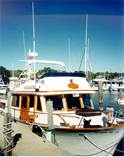|
Your Desired Success and Significance
By “success,” I mean your or my personal gain. Examples are our income, the car we drive, and the title held. In contrast, “significance” refers to your or my positive impact on others and society throughout our career and life. Success is about “stuff;” significance is about legacy.1, 2
Another way of looking at success and significance is to think about our epitaph or the hyphen between our birth and death dates on a gravestone. Do we want it to say something like “he drove a Porsche” or “she held a prestigious title”? Alternatively, would we prefer an epitaph like this: “He or she left the world a better place than he or she found it”?
William James, the psychologist and philosopher, tells us “The great use of life is to spend it for something that will outlast us.” I suspect that most of us want both; we want to achieve both success and significance. Where we differ is in the relative amounts.
Goals
Assume you embrace the success-significance idea. Then whatever your desired relative portions of each, you should set goals. We engineers know how to plan, design, and implement a wide variety of projects. That’s good news. However, we often fail to apply that admirable, overall goal-setting and achieving ability to our own lives and to our organizations.
As a result, we risk failing to meet our individual and organizational potential, realize it too late, and have deep regrets. Journalist and author S. J. Harris said “Regret for things we did can be tempered by time, while regret for things we did not do…is inconsolable.” We do not need to accept that sad outcome. Instead, learn how to define and accomplish goals consistent with our desired success and significance.
Your Two Futures
In my view, we as individuals and as organizations, have only two futures -- one of two overall paths to follow. One is the future we create for ourselves. The second, formed in the vacuum created by our inaction, is the future that others create for us. We can choose to see individual and organizational life as a condition we develop or a condition that happens to us. We have the option of choosing to be proactive -- or reactive, to be the windshield or the bug. The difference is whether we have goals and plans to achieve them. In addition, we are more likely to achieve our goals if we take a creative/innovative approach.2
Seeing the Harbor
Allow me a personal story to reinforce the power of goals. In 1993, my wife and I were traveling in our 34-foot trawler Sabbatical through the Great Lakes. This was early in a six-month, several thousand-mile voyage from the south end of Lake Michigan in clockwise fashion through the Great Lakes, into Canada, down the Atlantic coast, and into the Gulf of Mexico ending along Mobile Bay.

One unforgettable September day, we suddenly found ourselves in a ferocious storm on Lake Ontario. We were trying to cross the lake from north to south with our destination being Oswego, NY and the Erie Canal. Huge waves, driven by strong westerly winds, repeatedly pounded our starboard side. Water flowed down our decks as we rocked violently from side to side. Up to then, and since then, we have never been so scared. Increasingly we were unsure of where we were -- this is pre GPS -- or if we would survive. We had not and did not encounter another boat for several hours.

After about an hour of terror, we began to see what turned out to be two tall smoke stacks in Oswego. Now we could see where we were going. Now everything we did to maintain and maneuver our vessel directed us closer to those two stacks. An hour or so later, with great relief, we entered the protection of the Oswego harbor.

Goals are like those two stacks. They energize our organizations and us. Now we can see where we are going and act accordingly.
How About You?
Thomas Carlyle, the Scottish philosopher and writer, said: “The person without goals makes no progress even on the smoothest road. The person with clear goals makes progress on even the roughest road.” Regardless of the condition of the road, is your organization making its desired progress? More personally, are you moving toward your desired mix of success and significance? If not, goals and plans to achieve them are the answer.
Cited Sources:
1) Walesh, S. G. 2017. “Setting and Achieving Personal and Organizational Goals,” archived webinar available from ASCE as part of its on-demand webinar program.
2) Walesh, S. G. 2017. Introduction to Creativity and Innovation for Engineers, Pearson, New York, NY.
Waves and stack images courtesy of Pixabay.
Notes:
Learn More About Stu Walesh | Clients Served | Testimonials & Reviews
Managing and Leading Books | Tailored Education & Training
Home | Legal Notice | Privacy Statement | Site Map
Copyright © Stuart G. Walesh Ph.D. P.E. Dist.M.ASCE
Web Site Design, Hosting & Maintenance By Catalyst Marketing / Worryfree Websites |

